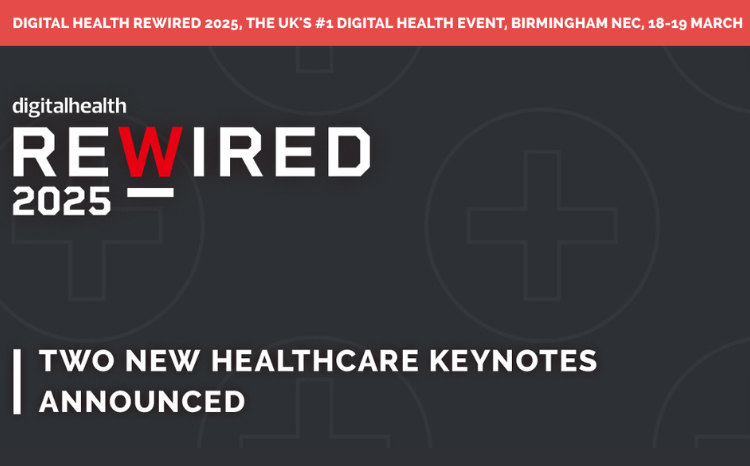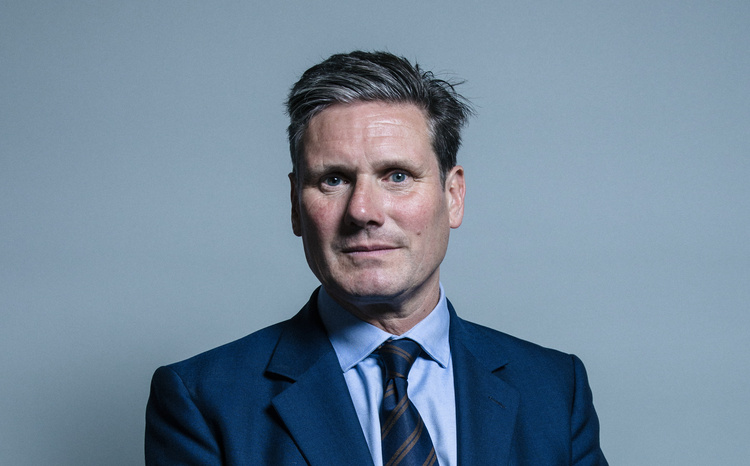Nick Barlow: ‘Digital leadership is more than adopting technologies’
- 19 March 2025

Nick Barlow, transformation director at DrDoctor, believes that reshaping how teams work together and collaborate is essential to digital leadership in the NHS.
After previously working in consultancy roles in the NHS for more than a decade, Barlow has developed an expertise in bridging the gap between technology and culture, ensuring NHS teams are equipped with the skills and structures needed for digital transformation.
Since joining DrDoctor in September 2023 he has been using this experience to drive sustained implementation of the firm’s solutions in hospitals, trusts and integrated care boards across the country.
Ahead of his session at Digital Health Rewired 2025, Barlow told Digital Health News his view on the government’s reform of NHS England, digital leadership in the NHS and how technology can make life easier for clinicians.
How do you think the abolition of NHSE will affect digital health suppliers?
Long term, the integration of NHSE with the Department of Health and Social Care signals a fresh direction, fostering closer collaboration between providers and policymakers.
As we approach the release of the 10 year health plan this spring, the groundwork has been laid for significant transformation.
To make this a success, we need to focus on building the executional capacity to deliver tangible digital outcomes, ensuring stability and continuity across the system. With this in place, we can align these bold decisions with a quicker pace of change at the frontline, ultimately improving the patient experience.
Immediately, during this period of complex transition, my thoughts are with our hard working and dedicated colleagues at NHSE.
How can we enable digital leadership in the NHS?
Digital leadership in the NHS is about more than just adopting new technologies; it’s about reshaping how teams work together and collaborate.
NHS staff need better support with more training to work effectively in this increasingly digital environment
We need to focus on bridging the gap between technology and people by supporting digital leaders not just in overseeing tech implementation, but in guiding teams through change, ensuring that there’s alignment between clinical, operational, and digital teams.
There are tech gaps in the NHS as we all know but there are also skills gaps and NHS staff need better support with more training to work effectively in this increasingly digital environment.
Finally, and it’s certainly not the most exciting, but if we expect leaders to be strong, they do need the right governance in place that allow for innovation while managing the complexities of NHS processes.
What can be done about clinician resistance to digital?
Resistance to digital tools isn’t universal. It’s not always about the technology; it’s about any change that might affect clinicians’ ability to focus on their priority—patient care.
Clinicians are the custodians of patient safety, and their concerns are often rooted in this responsibility. If there is hesitation, it usually stems from lack of trust, tech fatigue, or concerns about patient impact.
To overcome this, transformation teams must involve clinicians early in the process, making sure that the value and ROI of digital tools are clear from the outset.
Clinicians need to see these tools as something that will enhance their work, not complicate it.
Leadership from within clinical teams is essential in championing change. When clinicians understand that digital transformation will make their jobs easier and more efficient, they’re much more likely to embrace it.
The goal is to make digital tools work for clinicians, not the other way around.
How can we make sure that digital tools make life easier for NHS staff rather than add more burden?
For digital tools to truly help NHS staff, they must be user-centric and seamlessly integrated into existing workflows.
These tools should feel natural and intuitive, not add extra steps or complexity. It’s critical to involve frontline staff in the decision making process so that solutions directly address their real-world challenges.
Spending time on the front lines, seeing the daily pressures that clinicians face, and co-designing solutions that take into account both technical and cultural aspects ensures these tools make a positive impact.
The goal is to make digital tools work for clinicians, not the other way around
The goal is to reduce administrative burdens, automate repetitive tasks, and free up staff to focus on what matters most—patient care.
Over the past 12 years, we’ve worked closely with the NHS, gaining deep insights into their needs and delivering solutions that complement their workflows.
When decisions are made remotely, without this hands-on, front-line input, there’s a risk of creating systems that don’t resonate with staff and, ultimately, don’t deliver value.
Can you give us a taster of what you’ll be talking about at Rewired?
I’ll be discussing the role of digital leadership as the NHS moves towards a hybrid healthcare future. As the NHS develops integrated care pathways across primary and secondary care, digital leadership is crucial – not just for implementing new technology, but for transforming the way teams work.
My session, ‘Building digital and operational teams to drive sustainable change’ will focus on how digital leaders need to focus on creating flexible, modern ways of working that help both digital and operational teams make lasting improvements.
Drawing from my experience working with both small clinical teams and large hospital trusts, I’ll share insights into how digital leaders can connect technology with culture.
The aim is to ensure that NHS teams have the right skills, mindset, and support to be more productive and make the most of digital tools.
Barlow is speaking at Rewired 2025, which takes place at the NEC in Birmingham on 18-19 March 2025. The event is co-headline sponsored by The Access Group and Microsoft. Alcidion, Nervecentre, Solventum and Cynerio are also sponsors.




